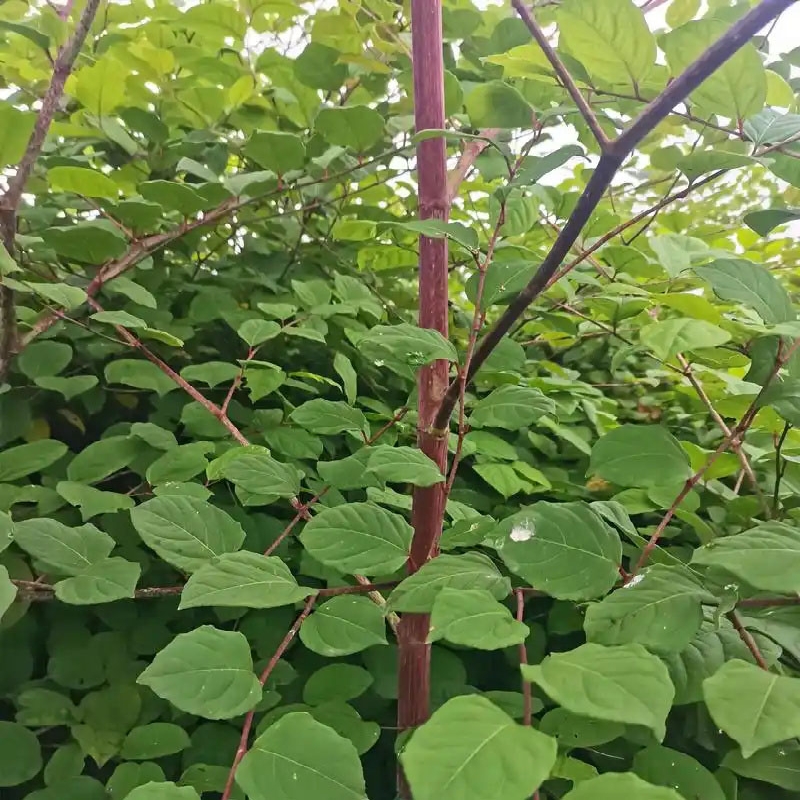The prospect of using poisonous plants to develop new pesticides
-
Last Update: 2010-07-05
-
Source: Internet
-
Author: User
Search more information of high quality chemicals, good prices and reliable suppliers, visit
www.echemi.com
China has abundant plant resources, many of which are poisonous plants with insecticidal and bacteriostatic effects Using these poisonous plants to produce pollution-free plant pesticides is the main development direction of green pesticides According to the estimate of FAO, the world's annual yield of food crops is reduced by 30% due to diseases and insect pests, resulting in economic losses of 120 billion US dollars In order to deal with diseases and insect pests, the world produces 2 million tons of pesticides every year, with an annual sales volume of US $18 billion However, long-term use of chemical pesticides will make pests resistant, resulting in a large increase in pesticide use, not only increasing the economic burden, but also easy to cause human and animal poisoning According to the statistics of relevant departments in Guangdong Province, there are more than 1000 cases of food poisoning caused by pesticide residues in vegetables and more than 30000 people are poisoned each year The United Nations has made strict regulations on the use of pesticides, and banned and restricted the use of 500 chemical pesticides Experts believe that China has a very rich plant resources, including more than 10000 poisonous plants with insecticidal and bacteriostatic effects Using these abundant poisonous plant resources to produce plant pesticide which is harmless to human and animal has a very pleasant prospect At present, there are several valuable plant pesticides in Guangdong Province: first, they have strong repellent effects on insects, such as camphor, eucalyptus, sandalwood, cinnamon, scholar, pepper, Brucea javanica, Wild Mint, etc Second, it has curative effect on crop mycosis, bacterial disease, virus disease, etc., such as hucirrus, phellodendron, rhubarb, forsythia, isatis root, tobacco, tea seed, etc The third is to extract natural substances which have strong antifeedant effect on insects from citrus, Polygonum hydropiper, wine cake leaves and other plants Fourth, plants that can sterilize insects, such as camptothecin, turmeric oil, cinnamon oil, etc In recent years, researchers from all over Guangdong have used local resources to develop and produce a batch of plant insecticides, which have been widely used In recent years, Guangdong Institute of insect research has successfully developed yutenginulin emulsifiable oil by using multiple synergism method, which has solved the problem of high production cost of plant pesticide in the past The plant pesticide produced by the Institute has the advantages of high efficiency, low toxicity, low residue and pollution-free It can be diluted for 1000-4000 times and its application effect has reached the international advanced level Through field production and application, the total control area of the product is 2 million hectares, especially for the control of highly resistant pest Plutella xylostella The cost of pesticide is more than half of that of chemical drugs At present, the product has won the national invention patent and the Guangdong Provincial Science and technology progress award It has been recommended as a pollution-free pesticide by Guangdong Province pollution-free vegetable engineering technology research and development center, which has opened a new way for the production of green pesticide by using plant resources.
This article is an English version of an article which is originally in the Chinese language on echemi.com and is provided for information purposes only.
This website makes no representation or warranty of any kind, either expressed or implied, as to the accuracy, completeness ownership or reliability of
the article or any translations thereof. If you have any concerns or complaints relating to the article, please send an email, providing a detailed
description of the concern or complaint, to
service@echemi.com. A staff member will contact you within 5 working days. Once verified, infringing content
will be removed immediately.






